Applications for the PCRBIO Research Grant are now open.
The grant offers a total of $10,000 funding for PCR reagents to scientists working in human health, microbiology, plant sciences, environment and sustainability, and all other research areas with a biological focus or which require plenty of PCR.
Applications will run from September until 30th November 2025. The results will be announced, and funding will commence, in January 2026.
Judges to be announced shortly.
The PCRBIO Research Grant will be awarded as follows:
- A main award of $6,000 of PCR reagents over 3 years
- 4 runner up prizes of $1000 of PCR reagents
- Help and technical support with all PCR related queries pertaining to our reagents
This award is ideal for PhD students, post-doctoral researchers, and academics looking for extra funding to expand their lab. To apply, simply complete the application form below.
This webpage is for applicants in the USA, if applying in the UK, follow this link.

This grant is open to full-time academic researchers of all levels, from PhD candidates to principal investigators, including lab technicians and lab managers, who submit applications on time. The grant is only available to researchers at US academic institutions. For a parallel UK grant click here.
We encourage members of the same lab group to submit a single joint application describing all PCR work that is carried out in their lab, rather than submitting individual applications.
Criteria evaluated include:
- Expected impact on the field of study
- Expected broader impact (social/medical/healthcare/diagnostic)
- Novelty
- Clarity, completeness
- How realistic is the requirement for the requested number of PCR reactions?
- Grants will be made out to the hosting laboratory (i.e., if you move laboratories before the grant funds are exhausted these will remain with the recipient host laboratory) in the form of credit with PCR Biosystems.
- Successful applicants will be contacted via email shortly after the evaluation process is complete. Funds will only be released once the successful applicant has acknowledged receipt of this email, submitted any additional required information, and provided a headshot photograph. Failure to complete any of these steps within two weeks from the date the original notification email is sent will result in the forfeiture of the grant, which will then be offered to the next highest-scoring applicant based on the judges’ evaluation.
- By submitting your application, you certify that you have been granted all permissions required by your academic supervisor or department to process this grant. It is your responsibility to ensure this is the case prior to submission.
- This grant covers all PCR Biosystems reagents, excluding dNTPs and DNA markers. Exceptions can be made when a reasonable quantity of these two product types is ordered along with any enzyme and only by separate communication with your PCR Biosystems account manager.
- Funding will commence in January 2026 and recipients will be able to place orders up to the maximum allotted amount at their discretion, in as many orders as they choose, until midnight December 31, 2029, or until the allotted funds are exhausted, whichever occurs first. Reagent cost will be deducted from the grant at the product list price.
- Grant applications will be assessed by an internal team of PCR experts and a shortlist will be reviewed by a mixed judging panel of internal and external research experts.
- PCR Biosystems retains the right to exclude any application, without giving a reason, at our own discretion.
- Multiple applications from the same individual will not be considered.
- Only one grant will be awarded per research group.
- Grant recipients consent to their identity and institute name being published on the PCR Biosystems website, social media, and on other promotional materials.
- Grant recipients agree to share at least one piece of content (lab photo or video, data image, video discussing their work with PCR Biosystems reagents, or other similar piece of content) with PCR Biosystems for promotional use. The main grant ($6000 prize) recipient agrees to share one such piece of content annually.
- Grant recipients agree to acknowledge PCR Biosystems funding on all works containing data generated with PCR Biosystems reagents acquired as part of the grant.
- Your personal data will be used for the purposes described in our privacy policy.
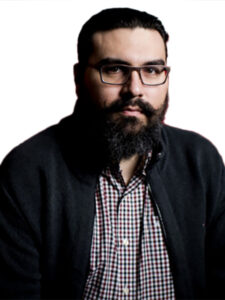
Dr. Javier Fernández Juárez
Assistant Professor
St. John’s University, New York
Dr. Javier Fernández Juárez is an Assistant Professor at St. John’s University (Queens, New York) where he leads a synthetic microbiology lab. Dr. Juárez was originally trained as an environmental microbiologist at the Spanish National Research Council (CSIC). With the aim of creating synthetic biology tools within the microbiology space, he started to work on the construction of custom-made transcription factors at Harvard Medical School and on kill-switch genetic circuits at the Forsyth Institute. He currently works on the development of novel whole-cell biosensors as well as on the assembly of biocontainment tools.
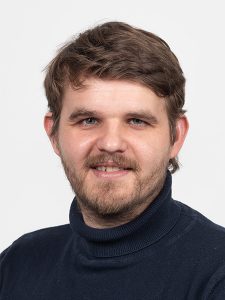
Dr. Constantine Garagounis
Product Manager
PCR Biosystems
Dr. Constantine Garagounis studied Biochemistry and Biotechnology and has a DPhil in Plant Sciences from the University of Oxford. He worked as a post-doctoral researcher and contract lecturer on plant secondary metabolism and how it affects plant microbe interactions. He has conducted various research projects in plant synthetic biology and engineering plant metabolic pathways and lectured in corresponding courses. He is currently working as a Product Marketing Specialist for PCR Biosystems.
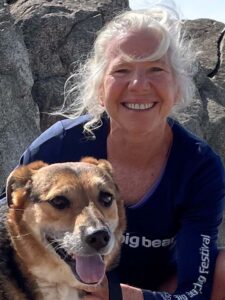
Dr. Judy Brusslan
Professor
California State University, Long Beach
Dr. Brusslan is a Plant Biologist using the model system Arabidopsis thaliana to understand the regulation of leaf senescence. Older leaves will undergo programmed cell death to recycle nutrients to support ongoing growth and the Brusslan lab takes a genetic approach to understand how the vegetative to reproductive transition signals the onset of leaf senescence in older rosette leaves. Dr. Brusslan earned her PhD at the University of Chicago studying cyanobacteria and began her work with Arabidopsis as a postdoc at University of California, Los Angeles. Dr. Brusslan became an AAAS Fellow in 2023. As a professor at a primarily undergraduate institution, Dr. Brusslan’s career has incorporated both research and teaching.
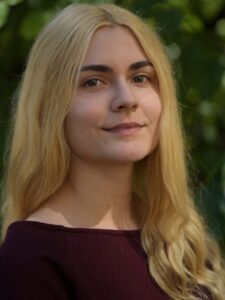
Dr. Konstantina Beritza
Post Doctoral Researcher
University of Cambridge, Dept. of Plant Sciences
Dr Konstantina Beritza is a Synthetic Biologist working on metabolic engineering with the ultimate aim of developing platforms for high-value products. She is currently a Postdoctoral Researcher at the University of Cambridge, focusing on the discovery and sustainable production of novel bioactive compounds, such as insect pheromones and antimicrobial metabolites, that can strengthen plant resilience and reduce reliance on chemical pesticides. Dr Beritza earned her PhD at the University of Oxford, where she investigated how proteases and subcellular compartmentation affect the production of complex proteins in plants, making contributions to improving Nicotiana benthamiana as a platform for producing human antiviral antibodies. Her career reflects a commitment to advancing plant synthetic biology as a tool for sustainable food security and biotechnology while also engaging in teaching, mentoring, and public engagement initiatives.
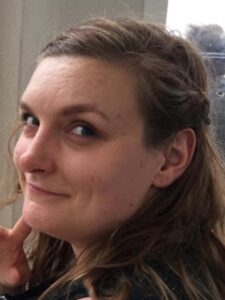
Daniela Berman - Main Grant Winner 2024
Graduate Student
UC San Diego
Identifying spontaneous preterm birth biomarkers to reduce preterm birth risks and improve maternal-infant outcomes
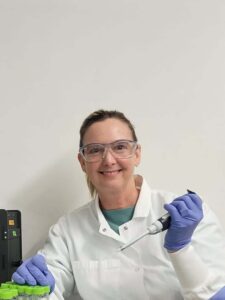
Michelle Ewy
Graduate Student
MIT - Huang-Hobbs Biomaker Space
Validating a medical diagnostic methodology for identifying Lyme disease
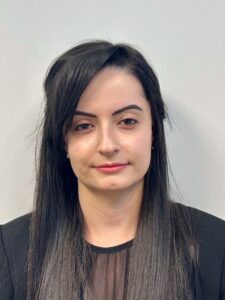
Treefa Shwani
Graduate Student
University at Buffalo
Identifying and characterising structural variants in non-coding regions of the genome that affect age-related macular degeneration (AMD).
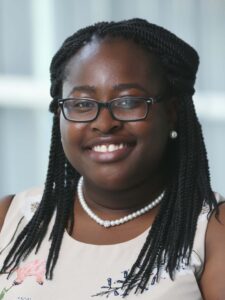
Bianca Edozie
Graduate Student
Stanford University
Developing a multiplexed qPCR assay to detect and quantify biomarker signatures of chronic fatigue syndrome in human saliva

Darnell Davis
Researcher
Howard University
Developing a CRISPR-based lateral flow assay for the detection of viral RNA

Elizabeth Delorme-Axford - Main Grant Winner 2023
Group Leader
Center for Biomedical Research, Oakland University
Designing synthetic cells for innovative biotechnological applications

Michael Urner
Graduate Student
California State University, Fresno
Developing rapid assays for detecting a soil-borne fungus

Sachin Rustgi
Associate Professor
Clemson University
Development of wheat variants with reduced immunogenicity

Ali Liaqat
Post-doctoral Fellow
University of Texas at Tyler
Investigating signal-transduction relating to antibiotic resistance in S. aureus

Lucas Farnung
Assistant Professor
Harvard Medical School
Unravelling molecular mechanisms of transcription in the chromatin native environment




